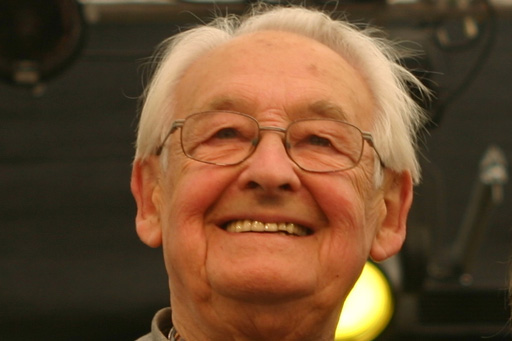Andrzej Wajda entre Histoire et intimité
par Dorota Hartwich

Lancement aujourd’hui dans les salles polonaises de Sweet Rush [+lire aussi :
critique
bande-annonce
fiche film] d’Andrzej Wajda, un film qui rappelle notamment que le célèbre réalisateur sait aussi traiter le drame des sentiments humains sans se concentrer uniquement sur les contextes historiques comme c’était le cas pour son dernier opus Katyn [+lire aussi :
critique
bande-annonce
interview : Andrzej Wajda
interview : Michal Kwiecinski
fiche film] et pour ses œuvres majeures comme L’homme de marbre ou L’homme de fer.
L’intrigue de Sweet Rush (adaptation des deux nouvelles Tatarak de Jarosław Iwazkiewicz et Sudden call de Sandor Marai) est centrée sur Marta, une femme mûre (Krystyna Janda), épouse d'un médecin de campagne qui détecte chez elle une maladie en phase terminale mais ne lui dit rien. Un jour, Marta rencontre Boguś (Paweł Szajda), un jeune homme qui la fascine, mais leurs innocents rendez-vous au bord de la rivière se termineront en drame.
Avant le tournage, Andrzej Wajda présentait Sweet Rush comme une oeuvre réalisée en grande partie pour Krystyna Janda, une actrice qui a joué dans de nombreux films et pièces de théâtre du cinéaste et metteur en scène depuis les années 70. Le déroulement narratif du long-métrage fait d’ailleurs une pause pour un monologue de la comédienne (qui a quasiment le statut de légende dans le cinéma polonais), une intervention très personnelle écrite par Krystyna Janda elle-même. Filmée dans la pénombre d'une chambre d'hôtel, à la manière des tableaux de Edward Hopper, elle raconte un deuil récent survenu en janvier 2008 : la perte de son mari, le fameux chef opérateur Edward Kłosinski.
Aux journalistes qui lui demandaient à l’occasion d’une conférence de presse si Sweet Rushétait un film-testament, Andrzej Wajda a répondu qu’il réfléchissait déjà non seulement à son prochain long métrage, mais aussi au suivant. Le premier devrait être un portrait de Lech Wałęsa, fondateur de Solidarité, président de la Pologne de 1990 à 1995 et prix Nobel de la Paix en 1983, sur un scénario d’Agnieszka Holland. Quant au second, il s’agirait d’un film sur Frédéric Chopin.
Vous avez aimé cet article ? Abonnez-vous à notre newsletter et recevez plus d'articles comme celui-ci, directement dans votre boîte mail.















